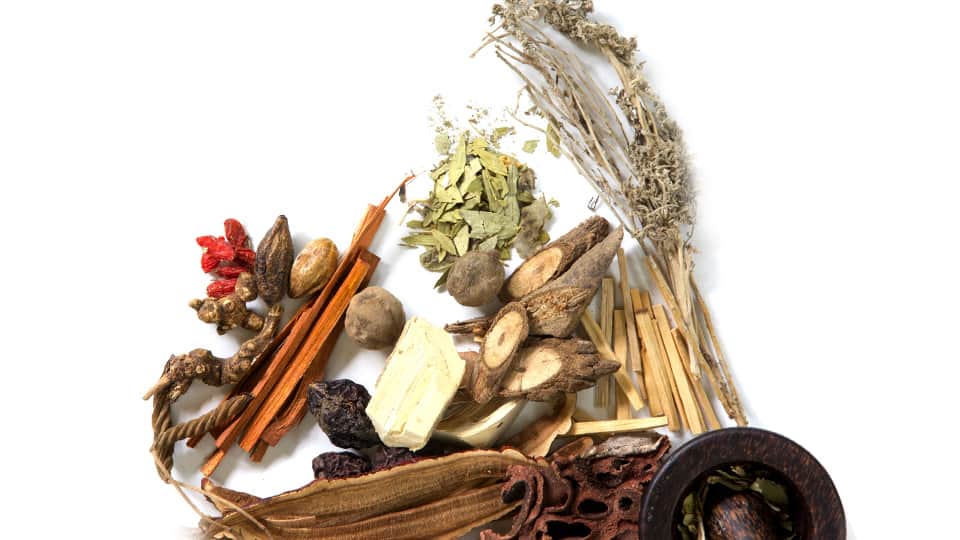Optimising Your Immunity: The TCM approach

When it comes to giving your immune system a boost, what comes to mind immediately may be to search for a list of superfoods to incorporate into your diet. However, did you know that there is more than one approach to optimise your immunity and protect your health? I ask Physician Tay Jia Yin, Raffles Chinese Medicine, to tell us more.
 How does Traditional Chinese Medicine (TCM) fit into nutrition?
How does Traditional Chinese Medicine (TCM) fit into nutrition?
Western nutrition analyses food in terms of its chemical composition. For example, the calories, carbohydrates, and vitamins it contains. On the other hand, Chinese medicine focuses on the energetic properties that each food contains.
Every food has a nature and flavour that is associated with our organs. ‘Nature’ refers to either warming or cooling, and it describes the temperature effect of a food has on the body. ‘Flavour’ refers to the taste, and it is often described as sour, bitter, sweet, salty or pungent. Chinese dietary therapy utilises these properties as a guide to having a well-balanced meal. A balanced diet is prescribed not only according to illnesses, but also in accordance to a person’s body type.
What are the TCM superfoods?
The term ‘superfood’ is a contemporary term. Generally, from the TCM viewpoint, one particular food could be good for one person but not so good for another. There is no one-size-fits-all label since the food nature as well as its flavours have to be taken into consideration. Besides, the properties that each food contains differs from one another and can be helpful to the body at different times.
There are, however, certain foods that stand out with special attributes and they are often consumed to maintain good health. These foods include:
- Ginseng: strengthens and replenishes Qi (vital energy), which is essential to the body, also relieves fatigue and improves immunity.
- Astragalus: known for its ability to strengthen the immune system and help the body fight off infections. It is an adaptogen that increases the body’s ability to handle stress, and contains anti-ageing properties.
- Walnuts: eating walnuts can sharpen the mind, and boost concentration and memory. In addition to helping the brain, walnuts can support the kidney’s Qi and aid digestion by lubricating the intestine.
- Goji Berry: also known as wolfberries, goji berries have been used as an herbal remedy for over 3,000 years. They nourish the kidney essence that underpins human vitality. Goji berries are commonly eaten to improve eyesight.
- Jujube dates: a warming food, the jujube date helps to strengthen the spleen and stomach’s Qi. It also nourishes the blood.
What are the recommended types of food?
In TCM, the role of food and medicine overlaps. For example, watermelon is a type of food, but its hydrating properties could also serve as a medicating effect during hot days.
However, there are also some foods that are considered more ‘medicine’ than ‘food’. For example, ginseng. When it comes to such ‘medicine’, a person should consult a practitioner since eating it could worsen one’s body condition because our bodies interact differently with different foods.
“From the TCM’s perspective, a good diet would be a balanced one, where foods are consumed in appropriate combinations according to their natures and flavours. It is best to consume fresh foods that are free from chemicals, preservatives, and over-processing.”
“It is also important not to eat too much (ideally about 70 per cent full) for each meal, and have food that is moderate in nature, so as to avoid straining the digestive organs,” advised Physician Tay.
What do people often overlook when consuming foods that are considered as TCM healthy?
When a person continually eats one type of food it creates an imbalance in their body, and this affects their health. For instance, foods with nourishing properties tend to be sweet in flavour (eg. red dates, goji berries) and overconsumption of such foods could lead to bloating. On the other hand, foods with strong cooling properties tend to be bitter in flavour (eg. cooling herbal teas), and taking too much of them could cause diarrhoea or loose stools.
One of the key principles in TCM is to keep our body in a ‘neutral’ state. This can be achieved by eating the right food at the right time and in moderation.
Does consuming tonic help to improve overall wellness?Tonic formulas help to augment or replenish the body substances when they are deficient or weak. It is important to first address the underlying deficiency before applying the appropriate tonic in order to obtain the maximum benefit. Commonly used herbs in tonics include astragalus (Huang Qi), ophiopogon tube (Mai Dong), goji berry, Chinese angelica root (Dang Gui).
In general, herbal tonics help to strengthen the body, aid in sleep and digestion, or boost the immune system. They could involve individual tonic herbs or a combination of small formulas.
Be the First to Know!
Like what you see? Receive more health and wellness articles from Raffles Medical Group to aid you in leading a healthy lifestyle.
 How does Traditional Chinese Medicine (TCM) fit into nutrition?
How does Traditional Chinese Medicine (TCM) fit into nutrition?


